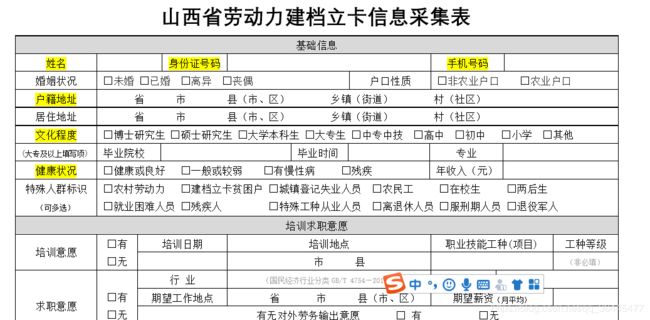- 复习打卡python篇——python面向对象与高级编程01
筒栗子
python开发语言
目录1.面向对象基本概念2.魔术方法2.1初始化方法、构造方法:__init__()2.2__str__()方法2.3__del__()方法3.面向对象三大特性3.1封装3.2继承3.2多态4.面向对象其他特性4.1类属性4.2类方法4.3静态方法1.面向对象基本概念传统的面向过程的编程思想——自顶向下,逐步细化。所谓的面向对象就是模拟现实世界,定义一个一个的实体,比如学生小明、班级3班、小狗TO
- 短期气候Python绘图——EOF(经验正交函数分解)大气环流基本状况
安载寿
python开发语言
一、要求掌握大气环流分型的基本方法--EOF(经验正交函数分解)大气环流基本状况;熟悉EOF方法和程序的应用,气象绘图;二、资料说明NCEP/NCAR1948-2008年(61年)的500百帕月平均高度场资料,资料范围为(900S-900N,00-3600E),网格距为2.50×2.50,纬向格点数为144,经向格点数为73,资料为GRD格式,资料从南到北、自西向东排列,每月为一个记录,按年逐月排
- 短期气候Python绘图——欧亚遥相关指数以及站点数据绘图
安载寿
python开发语言
一、要求计算EU(欧亚)遥相关指数,输出1月份该指数年际变化的时间序列;计算EU遥相关指数与同期环流场(500hPa高度场或海平面气压场)的相关系数;计算EU遥相关指数与同期我国气温的相关系数。二、资料说明(1)格点资料NCEP/NCAR1948-2012年(65年)的500百帕月平均高度场资料资料范围为(900S-900N,00-3600E)网格距为2.50×2.50,纬向格点数为144,经向格
- 中等难度——python实现电子宠物和截图工具
myzzb
python图像处理前端宠物
importio#文件处理importnt#windowsnt库直接获取对应的磁盘空间importtime#时间importzlib#加解密importctypes#调用importstruct#处理字节二进制importbase64#编解码importthreading#线程importtkinterastk#tkfromdatetimeimportdatetime#时间fromtkinteri
- python爬虫根据需要查找某个链接并保存
快乐小运维
python爬虫开发语言
importreimportosfromurllib.parseimporturlparse,quoteimportasyncioimportaiohttpfrombs4importBeautifulSoup#所有下载文件file_name=“1.txt”asyncdeffetch_url(session,url):try:#首先尝试HTTPSasyncwithsession.get(url,ti
- 华为OD机试E卷 --跳房子I--24年OD统一考试(Java & JS & Python & C & C++)
飞码创造者
最新华为OD机试题库2024华为odjavajavascriptc语言python
文章目录题目描述输入描述输出描述用例题目解析JS算法源码Java算法源码python算法源码c算法源码题目描述跳房子,也叫跳飞机,是一种世界性的儿童游戏。游戏参与者需要分多个回合按顺序跳到第1格直到房子的最后一格。跳房子的过程中,可以向前跳,也可以向后跳。假设房子的总格数是count,小红每回合可能连续跳的步教都放在数组steps中,请问数组中是否有一种步数的组合,可以让小红两个回合跳到量后—格?
- Python 写的《桌面时钟》屏保
PieroPc
Pythonpython开发语言
原代码:#日历式时钟#导入所需的库#作者:Hoye#日期:2024年12月16日#功能:显示当前日期、星期、时间,并显示模拟时钟importtkinterastkfromtkinterimportttkimporttimeimportmathimportsysdefexit_screensaver(event=None):root.quit()defdraw_clock_face():#清除画布c
- Python爬虫:从入门到实践
来恩1003
Python爬虫python爬虫开发语言
Python爬虫学习资料Python爬虫学习资料Python爬虫学习资料在当今数字化信息爆炸的时代,数据已成为企业和个人发展的重要资产。Python爬虫作为一种高效获取网络数据的工具,正逐渐被广大开发者所熟知和应用。无论是市场调研、学术研究,还是数据分析,Python爬虫都能发挥巨大作用。本文将带你从基础概念出发,逐步深入到爬虫的实战应用,助你掌握这一强大的数据获取技能。一、爬虫基础:开启数据获取
- 22.C语言Unicode编码与多字节字符处理详解
余识-
C语言基础c语言数据库
目录1.Unicode简介2.字符的表示方法3.多字节字符的表示4.宽字符5.多字节字符处理函数5.1mblen5.2wctomb5.3mbtowc()5.4wcstombs5.5mbstowcs本篇原文为:C语言Unicode编码与多字节字符处理详解。更多C++进阶、rust、python、逆向等等教程,可点击此链接查看:酷程网1.Unicode简介C语言诞生时,只考虑了英语字符,使用7位的AS
- python中print输出格式汇总_Python格式化字符串(格式化输出)
白字不白
我们在《第一个Python程序——在屏幕上输出文本》中讲到过print()函数的用法,这只是最简单最初级的形式,print()还有很多高级的玩法,比如格式化输出,这就是本节要讲解的内容。熟悉C语言printf()函数的读者能够轻而易举学会Pythonprint()函数,它们是非常类似的。print()函数使用以%开头的转换说明符对各种类型的数据进行格式化输出,具体请看下表。表1Python转换说明
- 【Python Tips】多线程池加速独立运行程序——ThreadPoolExecutor
机器白学
Pythonpython
在处理数量庞大的数据集或者大批量的循环操作时,程序如果单一运行往往会十分缓慢。假如硬件设备内存足够,CPU性能够好,同时每次循环内的任务都独立(如访问一个文件夹内大量文件)。这种时间复杂度的问题可以尝试使用多线程来处理加速。下面记录使用Python标准库中的高级接口——concurrent.futures.ThreadPoolExecutor来实现多线程加速。以一个写入txt文件的操作为例,假如有
- Python wxPython 库实现文本框与按钮交互示例
燕鹏01
Pythonpython
引言在Python的图形用户界面(GUI)开发中,wxPython是一个功能强大的库。今天,我们将通过一个简单的示例,详细讲解如何使用wxPython创建一个带有按钮和文本框的窗口,并实现按钮点击事件来向文本框中添加文本。代码解析导入wxPython库importwx这行代码导入了wxPython库,它是我们创建GUI应用程序的基础。创建MyFrame类classMyFrame(wx.Frame)
- 《Python实现简易DDoS压力测试脚本:原理、代码与使用警示》
乐茵安全
python_studychrome前端python网络安全
DDoS测试脚本声明:本文所涉及代码仅供学习使用,任何人利用此造成的一切后果与本人无关源码import requestsimport threading# 目标URLtarget_url = "http://47.121.xxx.xxx/"# 发送请求的函数def send_request(): while True: try: response = re
- 《还在为数据表难看而烦恼?Python绘制数据表能否成为你的救星?》
乐茵安全
python_studyjava前端python
利用python绘制各种数据图表绘制柱形图-源码from openpyxl import Workbookfrom openpyxl.chart import BarChart, Reference# 创建工作薄wb = Workbook(write_only=True)# 创建工作表ws = wb.create_sheet('月收入')# 准备数据rows = [ ('月份', '销售额'
- python3安装教程
@小左
python开发语言
1.下载python百度网盘下载python-3.12.3-amd64.exe链接:https://pan.baidu.com/s/1MV3kvVdjCdS_G-_KgefwLw?pwd=pgzu提取码:pgzu官网下载:WelcometoPython.org有很多版本,选择需要的版本下载2.安装python双击python-3.12.3-amd64.exeNext安装成功3.检查pythonwi
- 【2024华为OD-E卷-100分-字符串分割】(题目+思路+Java&C++&Python解析)
执着的小火车
2024华为OD-E卷华为odjavac++华为算法数据结构
题目字符串分割给定一个字符串s和一个整数k,你需要将字符串s分割成恰好k个非空子字符串,使得这些子字符串中字典序最大的子字符串尽可能小。输入:第一行输入一个字符串s(只包含小写字母)。第二行输入一个整数k。
- 华为OD机试E卷 - 空栈压数(Java & Python& JS & C++ & C )
算法大师
最新华为OD机试python华为odjavajavascriptc语言c++华为od机考e卷
最新华为OD机试真题目录:点击查看目录华为OD面试真题精选:点击立即查看题目描述向一个空栈压入正整数,每当压入一个整数时,执行以下规则(设:栈顶至栈底整数依次编号为n1,n2,…,nx,其中n1为最新压入的整数)如果n1=n2,则n1、n2全部出栈,压入新数据m(m=2*n1)如果n1=n2+…+ny(y的范围为[3,x]),则n1,n2,…,ny全部出栈,压入新数据m(m=2*n1)。如果上述规
- Python的条件判断、循环和函数(超详细教学)
小星袁
Python入门级超详细教学python服务器开发语言Python循环条件函数
目录一、条件判断1.1if语句1.2ifelse语句1.3ifelifelse语句二、循环2.1累加2.1.1for循环2.1.2while循环2.2break跳出循环2.3列表表达式2.3.1定义2.3.2举例三、函数3.1求和函数3.2匿名函数一、条件判断1.1if语句A=10ifA>0:print("A是正数!")1.2ifelse语句A=-10ifA>0:print("A是正数!")els
- Python进阶-在Ubuntu上部署Flask应用
随着云计算和容器化技术的普及,Linux服务器已成为部署Web应用程序的主流平台之一。Python作为一种简单易用的编程语言,适用于开发各种应用程序。本文将详细介绍如何在Ubuntu服务器上部署Python应用,包括环境准备、应用发布、配置反向代理(Nginx)、设置系统服务以及日志管理等步骤。一、部署准备在开始之前,请确保你具备以下条件:一台运行Ubuntu(如Ubuntu20.04或22.04
- 【华为OD-E卷 - 篮球比赛 100分(python、java、c++、js、c)】
CodeClimb
算法题华为od(A+B+C+D+E卷)收录分享华为odpythonjavac++javascript
【华为OD-E卷-篮球比赛100分(python、java、c++、js、c)】题目篮球(5V5)比赛中,每个球员拥有一个战斗力,每个队伍的所有球员战斗力之和为该队伍的总体战斗力。现有10个球员准备分为两队进行训练赛,教练希望2个队伍的战斗力差值能够尽可能的小,以达到最佳训练效果。给出10个球员的战斗力,如果你是教练,你该如何分队,才能达到最佳训练效果?请说出该分队方案下的最小战斗力差值输入描述0
- 【华为OD-E卷 - 敏感字段加密 100分(python、java、c++、js、c)】
CodeClimb
算法题华为od(A+B+C+D+E卷)收录分享华为odpythonjavac++javascript
【华为OD-E卷-敏感字段加密100分(python、java、c++、js、c)】题目给定一个由多个命令字组成的命令字符串:字符串长度小于等于127字节,只包含大小写字母,数字,下划线和偶数个双引号;命令字之间以一个或多个下划线_进行分割;可以通过两个双引号””来标识包含下划线_的命令字或空命令字(仅包含两个双引号的命令字),双引号不会在命令字内部出现;请对指定索引的敏感字段进行加密,替换为**
- Python网络爬虫入门教程:从抓取数据到应用实现
冷夜雨.
python
引言在大数据时代,信息就是力量。各种网站每天产生着海量的数据,这些数据中蕴藏着巨大的商业价值和研究价值。如何快速、自动化地从互联网上获取这些信息,成为了数据科学、人工智能、市场分析等领域中的一个重要课题。Python,作为一门易于学习且功能强大的编程语言,其丰富的库和工具使得构建网络爬虫变得非常简单。网络爬虫(WebScraper)是一种自动化程序,用来从网页中提取信息。无论是用于数据分析、竞争对
- 编程语言大揭秘:各显神通的编程世界
冷夜雨.
pythonjavac++c#javascript
在当今数字化的时代,编程语言犹如一把把神奇的钥匙,打开了通往不同技术领域的大门。从网页开发到人工智能,从数据分析到游戏制作,每一种编程语言都有其独特的优势与适用场景。今天,就让我们一同深入探索几种主流编程语言的奥秘,看看在什么情况下它们能发挥最大的威力。Python:万能胶水,快速开发的利器Python以其简洁、易读的语法著称,仿佛是用自然语言编写代码一般,新手程序员也能快速上手。它拥有庞大且丰富
- Windows中配置Python 3.11环境安装教程
Python老安
windowspython3.11pythonflask开发语言电脑microsoft
目录一、下载和安装Python3.111.1下载Python3.111.2安装Python3.11二、配置环境变量2.1检查Python是否已添加到PATH2.2手动添加Python到PATH三、验证Python和pip安装3.1验证Python安装3.2验证pip安装四、安装常用的Python包和工具4.1更新pip4.2安装虚拟环境管理工具4.2.1安装virtualenv4.2.2创建虚拟环
- 【vLLM 学习】安装
vLLM是一款专为大语言模型推理加速而设计的框架,实现了KV缓存内存几乎零浪费,解决了内存管理瓶颈问题。更多vLLM中文文档及教程可访问→https://vllm.hyper.ai/vLLM是一个Python库,包含预编译的C++和CUDA(12.1)二进制文件。依赖环境操作系统:LinuxPython:3.8-3.12GPU:计算能力7.0或更高(例如V100、T4、RTX20xx、A100、L
- SeaTunnel 增强对 Excel 读取能力,支持xlsx、xls、公式单元格
数据库
概述在数据集成场景中,Excel文件作为常见的数据来源,其格式多样化和功能复杂性常常给开发者带来一定挑战。本次修改基于SeaTunnel-2.3.4版本,包括:自动识别.xlsx和.xls文件类型,不再依赖文件后缀名判断;新增对公式单元格的值解析支持;优化数据类型转换的容错性。修改完之后,增强对Excel的读取能力,自动识别xlsx、xls,支持读取公式单元格的值,进一步提升了SeaTunnel在
- 【第四天】零基础入门刷题Python-Selenium-自动化测试-打开百度的首页搜索B站然后打开B站-切换B站窗口在B站搜索框中搜索Selenium-复习XPATH详细语法
Long_poem
pythonselenium开发语言xmlhtml
提示:文章写完后,目录可以自动生成,如何生成可参考右边的帮助文档文章目录前言一、先复习昨天的XPATH语法,然后学习怎么切换窗口二、详细代码1.对本节代码XPath表达式的解释2.在百度的首页上搜索B站后打开B站-在B站搜索框中搜索Selenium3.对切换窗口的详细介绍4.对上方的两个模块的详细介绍总结前言提示:这里可以添加本文要记录的大概内容:第零天练习补充零基础入门刷题Python-Sele
- 豆包 API 调用示例代码详解-Python版
道长不会写代码
python基础教学python开发语言
文章目录豆包API调用示例代码详解-Python版一、事前准备二、所需Python包三、代码详解五、源码下载四、总结豆包官方API文档豆包API调用示例代码详解-Python版在本文中,我们将详细介绍如何使用Python调用豆包API,并提供相关的事前准备和代码执行步骤。一、事前准备密钥申请:要使用豆包API,首先需要申请一个授权密钥。在上述代码中,密钥存储在headers字典的Authoriza
- Python加密算法有哪些?有什么作用?
Python中的常见加密算法及其应用加密算法在现代计算机科学中扮演着至关重要的角色,它们用于保护数据的机密性、完整性和验证身份。在Python中,有许多加密算法可以使用,它们各自具有不同的特点和应用场景。以下是一些常见的加密算法及其详细介绍:1.AES(AdvancedEncryptionStandard)️简介:AES是一种对称加密算法,广泛用于保护敏感数据,属于块加密算法。AES有三种密钥长度
- Python - random.seed初探 - 为什么固定随机种子了每次结果还不一样
Tisfy
实用技巧Pythonpython开发语言random随机种子
Python-random.seed初探-为什么固定随机种子了每次结果还不一样前言和很多语言一样,python的random也能设置随机种子,设置随机种子后相同的rand调用会产生相同的结果。例如下面代码在同一版本的python下,理论上不论何时运行多少次都将得到相同的结果:importrandomrandom.seed(83)a=[random.randint(0,random.randint(
- 深入浅出Java Annotation(元注解和自定义注解)
Josh_Persistence
Java Annotation元注解自定义注解
一、基本概述
Annontation是Java5开始引入的新特征。中文名称一般叫注解。它提供了一种安全的类似注释的机制,用来将任何的信息或元数据(metadata)与程序元素(类、方法、成员变量等)进行关联。
更通俗的意思是为程序的元素(类、方法、成员变量)加上更直观更明了的说明,这些说明信息是与程序的业务逻辑无关,并且是供指定的工具或
- mysql优化特定类型的查询
annan211
java工作mysql
本节所介绍的查询优化的技巧都是和特定版本相关的,所以对于未来mysql的版本未必适用。
1 优化count查询
对于count这个函数的网上的大部分资料都是错误的或者是理解的都是一知半解的。在做优化之前我们先来看看
真正的count()函数的作用到底是什么。
count()是一个特殊的函数,有两种非常不同的作用,他可以统计某个列值的数量,也可以统计行数。
在统
- MAC下安装多版本JDK和切换几种方式
棋子chessman
jdk
环境:
MAC AIR,OS X 10.10,64位
历史:
过去 Mac 上的 Java 都是由 Apple 自己提供,只支持到 Java 6,并且OS X 10.7 开始系统并不自带(而是可选安装)(原自带的是1.6)。
后来 Apple 加入 OpenJDK 继续支持 Java 6,而 Java 7 将由 Oracle 负责提供。
在终端中输入jav
- javaScript (1)
Array_06
JavaScriptjava浏览器
JavaScript
1、运算符
运算符就是完成操作的一系列符号,它有七类: 赋值运算符(=,+=,-=,*=,/=,%=,<<=,>>=,|=,&=)、算术运算符(+,-,*,/,++,--,%)、比较运算符(>,<,<=,>=,==,===,!=,!==)、逻辑运算符(||,&&,!)、条件运算(?:)、位
- 国内顶级代码分享网站
袁潇含
javajdkoracle.netPHP
现在国内很多开源网站感觉都是为了利益而做的
当然利益是肯定的,否则谁也不会免费的去做网站
&
- Elasticsearch、MongoDB和Hadoop比较
随意而生
mongodbhadoop搜索引擎
IT界在过去几年中出现了一个有趣的现象。很多新的技术出现并立即拥抱了“大数据”。稍微老一点的技术也会将大数据添进自己的特性,避免落大部队太远,我们看到了不同技术之间的边际的模糊化。假如你有诸如Elasticsearch或者Solr这样的搜索引擎,它们存储着JSON文档,MongoDB存着JSON文档,或者一堆JSON文档存放在一个Hadoop集群的HDFS中。你可以使用这三种配
- mac os 系统科研软件总结
张亚雄
mac os
1.1 Microsoft Office for Mac 2011
大客户版,自行搜索。
1.2 Latex (MacTex):
系统环境:https://tug.org/mactex/
&nb
- Maven实战(四)生命周期
AdyZhang
maven
1. 三套生命周期 Maven拥有三套相互独立的生命周期,它们分别为clean,default和site。 每个生命周期包含一些阶段,这些阶段是有顺序的,并且后面的阶段依赖于前面的阶段,用户和Maven最直接的交互方式就是调用这些生命周期阶段。 以clean生命周期为例,它包含的阶段有pre-clean, clean 和 post
- Linux下Jenkins迁移
aijuans
Jenkins
1. 将Jenkins程序目录copy过去 源程序在/export/data/tomcatRoot/ofctest-jenkins.jd.com下面 tar -cvzf jenkins.tar.gz ofctest-jenkins.jd.com &
- request.getInputStream()只能获取一次的问题
ayaoxinchao
requestInputstream
问题:在使用HTTP协议实现应用间接口通信时,服务端读取客户端请求过来的数据,会用到request.getInputStream(),第一次读取的时候可以读取到数据,但是接下来的读取操作都读取不到数据
原因: 1. 一个InputStream对象在被读取完成后,将无法被再次读取,始终返回-1; 2. InputStream并没有实现reset方法(可以重
- 数据库SQL优化大总结之 百万级数据库优化方案
BigBird2012
SQL优化
网上关于SQL优化的教程很多,但是比较杂乱。近日有空整理了一下,写出来跟大家分享一下,其中有错误和不足的地方,还请大家纠正补充。
这篇文章我花费了大量的时间查找资料、修改、排版,希望大家阅读之后,感觉好的话推荐给更多的人,让更多的人看到、纠正以及补充。
1.对查询进行优化,要尽量避免全表扫描,首先应考虑在 where 及 order by 涉及的列上建立索引。
2.应尽量避免在 where
- jsonObject的使用
bijian1013
javajson
在项目中难免会用java处理json格式的数据,因此封装了一个JSONUtil工具类。
JSONUtil.java
package com.bijian.json.study;
import java.util.ArrayList;
import java.util.Date;
import java.util.HashMap;
- [Zookeeper学习笔记之六]Zookeeper源代码分析之Zookeeper.WatchRegistration
bit1129
zookeeper
Zookeeper类是Zookeeper提供给用户访问Zookeeper service的主要API,它包含了如下几个内部类
首先分析它的内部类,从WatchRegistration开始,为指定的znode path注册一个Watcher,
/**
* Register a watcher for a particular p
- 【Scala十三】Scala核心七:部分应用函数
bit1129
scala
何为部分应用函数?
Partially applied function: A function that’s used in an expression and that misses some of its arguments.For instance, if function f has type Int => Int => Int, then f and f(1) are p
- Tomcat Error listenerStart 终极大法
ronin47
tomcat
Tomcat报的错太含糊了,什么错都没报出来,只提示了Error listenerStart。为了调试,我们要获得更详细的日志。可以在WEB-INF/classes目录下新建一个文件叫logging.properties,内容如下
Java代码
handlers = org.apache.juli.FileHandler, java.util.logging.ConsoleHa
- 不用加减符号实现加减法
BrokenDreams
实现
今天有群友发了一个问题,要求不用加减符号(包括负号)来实现加减法。
分析一下,先看最简单的情况,假设1+1,按二进制算的话结果是10,可以看到从右往左的第一位变为0,第二位由于进位变为1。
- 读《研磨设计模式》-代码笔记-状态模式-State
bylijinnan
java设计模式
声明: 本文只为方便我个人查阅和理解,详细的分析以及源代码请移步 原作者的博客http://chjavach.iteye.com/
/*
当一个对象的内在状态改变时允许改变其行为,这个对象看起来像是改变了其类
状态模式主要解决的是当控制一个对象状态的条件表达式过于复杂时的情况
把状态的判断逻辑转移到表示不同状态的一系列类中,可以把复杂的判断逻辑简化
如果在
- CUDA程序block和thread超出硬件允许值时的异常
cherishLC
CUDA
调用CUDA的核函数时指定block 和 thread大小,该大小可以是dim3类型的(三维数组),只用一维时可以是usigned int型的。
以下程序验证了当block或thread大小超出硬件允许值时会产生异常!!!GPU根本不会执行运算!!!
所以验证结果的正确性很重要!!!
在VS中创建CUDA项目会有一个模板,里面有更详细的状态验证。
以下程序在K5000GPU上跑的。
- 诡异的超长时间GC问题定位
chenchao051
jvmcmsGChbaseswap
HBase的GC策略采用PawNew+CMS, 这是大众化的配置,ParNew经常会出现停顿时间特别长的情况,有时候甚至长到令人发指的地步,例如请看如下日志:
2012-10-17T05:54:54.293+0800: 739594.224: [GC 739606.508: [ParNew: 996800K->110720K(996800K), 178.8826900 secs] 3700
- maven环境快速搭建
daizj
安装mavne环境配置
一 下载maven
安装maven之前,要先安装jdk及配置JAVA_HOME环境变量。这个安装和配置java环境不用多说。
maven下载地址:http://maven.apache.org/download.html,目前最新的是这个apache-maven-3.2.5-bin.zip,然后解压在任意位置,最好地址中不要带中文字符,这个做java 的都知道,地址中出现中文会出现很多
- PHP网站安全,避免PHP网站受到攻击的方法
dcj3sjt126com
PHP
对于PHP网站安全主要存在这样几种攻击方式:1、命令注入(Command Injection)2、eval注入(Eval Injection)3、客户端脚本攻击(Script Insertion)4、跨网站脚本攻击(Cross Site Scripting, XSS)5、SQL注入攻击(SQL injection)6、跨网站请求伪造攻击(Cross Site Request Forgerie
- yii中给CGridView设置默认的排序根据时间倒序的方法
dcj3sjt126com
GridView
public function searchWithRelated() {
$criteria = new CDbCriteria;
$criteria->together = true; //without th
- Java集合对象和数组对象的转换
dyy_gusi
java集合
在开发中,我们经常需要将集合对象(List,Set)转换为数组对象,或者将数组对象转换为集合对象。Java提供了相互转换的工具,但是我们使用的时候需要注意,不能乱用滥用。
1、数组对象转换为集合对象
最暴力的方式是new一个集合对象,然后遍历数组,依次将数组中的元素放入到新的集合中,但是这样做显然过
- nginx同一主机部署多个应用
geeksun
nginx
近日有一需求,需要在一台主机上用nginx部署2个php应用,分别是wordpress和wiki,探索了半天,终于部署好了,下面把过程记录下来。
1. 在nginx下创建vhosts目录,用以放置vhost文件。
mkdir vhosts
2. 修改nginx.conf的配置, 在http节点增加下面内容设置,用来包含vhosts里的配置文件
#
- ubuntu添加admin权限的用户账号
hongtoushizi
ubuntuuseradd
ubuntu创建账号的方式通常用到两种:useradd 和adduser . 本人尝试了useradd方法,步骤如下:
1:useradd
使用useradd时,如果后面不加任何参数的话,如:sudo useradd sysadm 创建出来的用户将是默认的三无用户:无home directory ,无密码,无系统shell。
顾应该如下操作:
- 第五章 常用Lua开发库2-JSON库、编码转换、字符串处理
jinnianshilongnian
nginxlua
JSON库
在进行数据传输时JSON格式目前应用广泛,因此从Lua对象与JSON字符串之间相互转换是一个非常常见的功能;目前Lua也有几个JSON库,本人用过cjson、dkjson。其中cjson的语法严格(比如unicode \u0020\u7eaf),要求符合规范否则会解析失败(如\u002),而dkjson相对宽松,当然也可以通过修改cjson的源码来完成
- Spring定时器配置的两种实现方式OpenSymphony Quartz和java Timer详解
yaerfeng1989
timerquartz定时器
原创整理不易,转载请注明出处:Spring定时器配置的两种实现方式OpenSymphony Quartz和java Timer详解
代码下载地址:http://www.zuidaima.com/share/1772648445103104.htm
有两种流行Spring定时器配置:Java的Timer类和OpenSymphony的Quartz。
1.Java Timer定时
首先继承jav
- Linux下df与du两个命令的差别?
pda158
linux
一、df显示文件系统的使用情况,与du比較,就是更全盘化。 最经常使用的就是 df -T,显示文件系统的使用情况并显示文件系统的类型。 举比例如以下: [root@localhost ~]# df -T Filesystem Type &n
- [转]SQLite的工具类 ---- 通过反射把Cursor封装到VO对象
ctfzh
VOandroidsqlite反射Cursor
在写DAO层时,觉得从Cursor里一个一个的取出字段值再装到VO(值对象)里太麻烦了,就写了一个工具类,用到了反射,可以把查询记录的值装到对应的VO里,也可以生成该VO的List。
使用时需要注意:
考虑到Android的性能问题,VO没有使用Setter和Getter,而是直接用public的属性。
表中的字段名需要和VO的属性名一样,要是不一样就得在查询的SQL中
- 该学习笔记用到的Employee表
vipbooks
oraclesql工作
这是我在学习Oracle是用到的Employee表,在该笔记中用到的就是这张表,大家可以用它来学习和练习。
drop table Employee;
-- 员工信息表
create table Employee(
-- 员工编号
EmpNo number(3) primary key,
-- 姓
 人员信息来自excle表格,如下图所示:
人员信息来自excle表格,如下图所示: 每个人填写一张word表格,word表格可能是由于单元格合并的原因,许多cell并不是看上去的位置,如要填写身份证号码的单元格看起来像是第二行第四列的单元格(cell(1,3)),其实是cell(1,6)。总之这个word表格的格式非常的乱七八糟,python操作起来非常困难,试了好久才找到每一个需要填写的元素的位置,还有单元格的paragraphs和runs的数量、内容!!!
每个人填写一张word表格,word表格可能是由于单元格合并的原因,许多cell并不是看上去的位置,如要填写身份证号码的单元格看起来像是第二行第四列的单元格(cell(1,3)),其实是cell(1,6)。总之这个word表格的格式非常的乱七八糟,python操作起来非常困难,试了好久才找到每一个需要填写的元素的位置,还有单元格的paragraphs和runs的数量、内容!!!